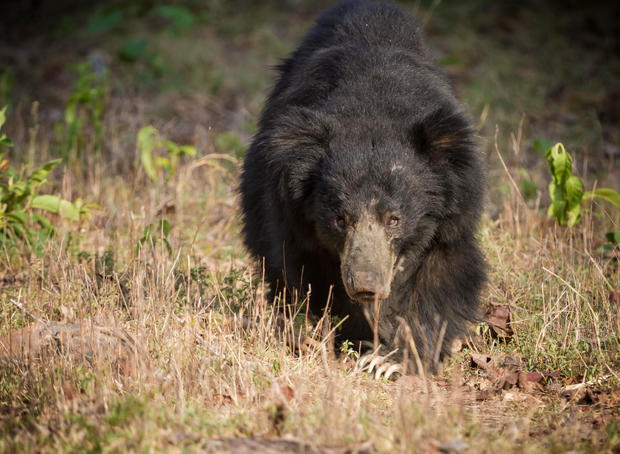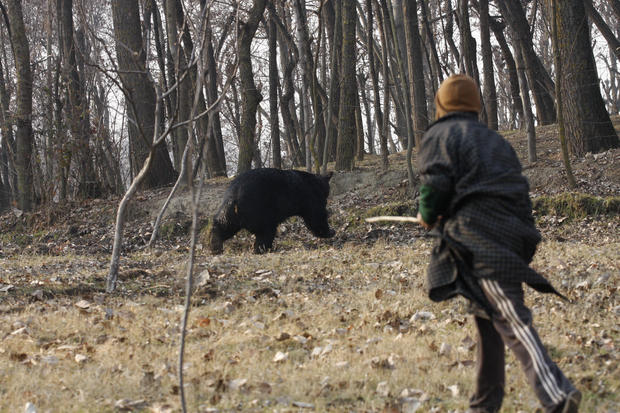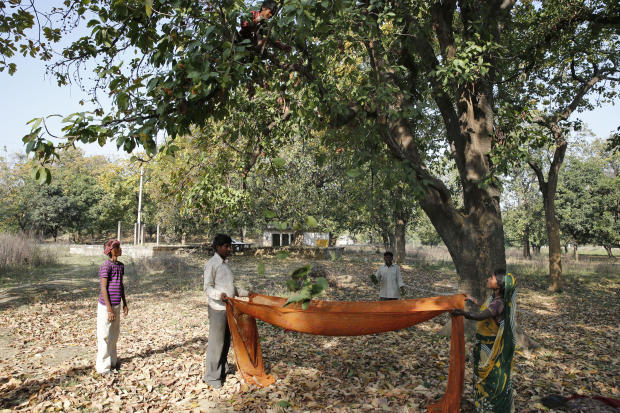Sloth bear kills and eats couple in
Rakesh Reddy Ponnala/Getty
New Delhi — A sloth bear mauled a couple to death in a forest in central India’s Madhya Pradesh state last weekend and then spent hours eating their remains in a gruesome attack that wildlife conservationists say was unusual for the species. While sloth bear attacks on people are relatively common, they are not generally known to feed on human flesh.
The attack took place on Sunday when a man and his wife were returning home from a temple visit early in the morning. The sloth bear first attacked the woman as the couple walked through the Panna National Park forest, killing her. Her husband was killed when he tried to rescue his wife.
Divisional Forest Officer Gaurav Sharma was quoted by India’s NDTV network as saying the attack happened around 6:30 in the morning after the couple went “to offer prayers at a temple” in the area.
Eyewitnesses told the Times of India that a crowd of villagers gathered at the spot and tried to scare the bear away by firing gunshots in the air, but it wouldn’t budge, and continued eating the victims for three hours until forestry workers arrived.
“This is very unusual,” Neha Sinha, a conservation biologist and author, told CBS News. “Usually, sloth bears eat honey and insects.”
Sloth bears are found in India and other South Asian countries, including Nepal, Sri Lanka, Bangladesh, and Bhutan. They are about the size of American black bears and can grow to weigh more than 300 pounds.
Waseem Andrabi/Hindustan Times/Getty
Escalating deforestation has been depriving species including bears of their natural habitat and putting them into closer proximity of towns and villages for at least two decades, and incidents of violent human-animal confrontations have been on the rise in India .
“Generally there is conflict during mahua season, when people go to collect flowers and the bears are feeding,” Sinha explained to CBS News. The mahua is a tree that grows across many parts of South Asia and flowers in the late spring and early summer. The flowers are prized by both people and sloth bears.
Residents often venture into the forests to collect the flowers for sale at this time of year.
Rajesh Kumar Singh/AP
Forestry officials told Indian media outlets the bear’s unusual behavior may have been due to a rabies infection.
Uttam Kumar Sharma, field director of Panna National Park, was quoted by the India Today news outlet as saying the “bear seems to have been afflicted with rabies, and was in its last stages.”
Regional authorities said the couple’s family would be given 400,000 Indian rupees ($5,100) in compensation for their loss.
For all the latest World News Click Here
For the latest news and updates, follow us on Google News.




